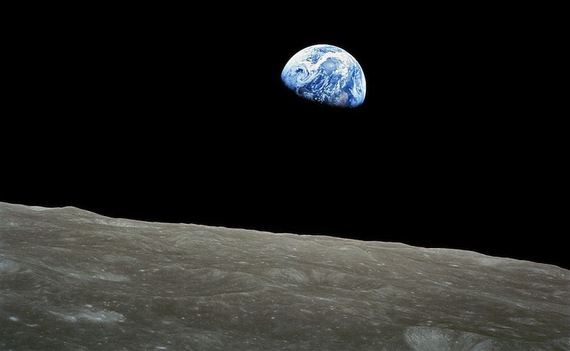Seven days; lots of science in the news. Here's our roundup of the most notable and quotable items:
Image credit: NASA
Researchers tacked on 60 million years to the estimated age of the Earth and the moon. Dinosaurs were neither warm-blooded nor cold-blooded, but somewhere in between. Today's teenagers aren't smoking, drinking soda, or watching as much TV as teens of the recent past, but are flocking to new bad habits like texting while driving.
A horned frog's tongue sticks to its prey with enough force to capture an object three times its own body weight. Scientists found water locked in minerals lying 400 miles below the Earth's surface. Climate change is making corn an increasingly unsustainable crop. Male diving beetles evolved suckers on the bottoms of their feet in order to get a better grip on their mates.
Some researchers said a computer chat program called Eugene Goostman may have been the first to pass the Turing Test after convincing a few human judges it was a 13 year old Ukranian boy... but other experts are skeptical. Basketball commentators were quick to attribute LeBron James' debilitating leg cramps during the first game of the NBA finals to dehydration and heat... but there's a lot of evidence that fatigue is the more likely factor. Humans' faces may have evolved to take a punch...or maybe not.
Desert ant sperm cells fare better when they swim together in bundles. Mexicans are an extremely genetically diverse population. Anti-anxiety medication works on nervous crayfish.
____________
"This Week In Science" is presented by the World Science Festival, an annual celebration of science in New York City. To see engaging scientific conversations, learn about new discoveries and more, check out the Festival website.
